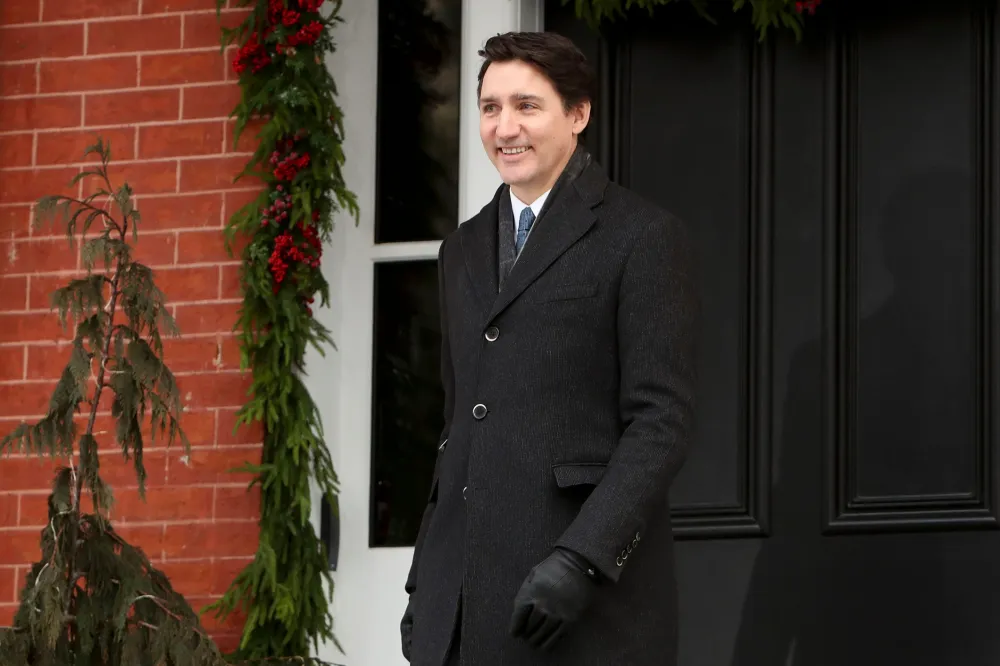In a decisive move signaling the country’s preparedness to guard its economic interests, Canadian Prime Minister Justin Trudeau announced yesterday that Canada had set up counter-tariffs in expectation of possible trade measures from the United States. The country made the move amidst the rising fray between the two neighbors and neighbors, with U.S. President Donald Trump hinting at a possible trade war that would significantly strain their bilateral relations.
Trudeau’s Assurance
During a press conference held in Ottawa, Prime Minister Trudeau addressed concerns regarding the escalating rhetoric around trade disputes. “Canada is committed to maintaining a fair and open trading relationship with the United States,” Trudeau stated. “However, we are prepared to defend our industries and economy with counter-tariffs if necessary.”
This is not an escalation of tensions, but it’s about being a deterrent for unfair trade practices,” Trudeau said. “Our goal is to make sure that Canadian businesses can compete on a level playing field. If the U.S. imposes tariffs that harm our economy, we have the tools in place to respond effectively.
The prospect of a trade war has been growing since the Donald Trump administration, which promised trade renegotiation and reduction of the trade deficit with Canada. The hardest hit among sectors would likely be automotive, agriculture, and lumber, which contribute significantly to the economy of Canada.
For months, President Trump criticized the existent international trade agreements, stating them to be disadvantageous to workers and businesses in America. This speculation makes it possible that tariffs will soon be levied on Canadian products, so Trudeau is acting ahead of time.
Economic Consequences
Economists, however, raise a red flag that a war between the U.S. and Canada through trade could unleash devastating effects for both countries. The two share one of the largest trading relationships in the world, with an annual exchange worth billions of dollars in goods and services. An interruption in such a flow is likely to create increased costs for consumers, jobs lost, and strained diplomatic ties.
Industry leaders have expressed support for Trudeau’s preparedness. Sarah Thompson, CEO of Maple Industries, stated, “It’s reassuring to see the government taking decisive action to protect our interests. We rely heavily on the U.S. market, and having counter-tariffs in place provides a necessary safeguard.”
Government Measures
Beyond counter-tariffs, the Canadian government is exploring additional strategies to mitigate the impact of potential U.S. trade restrictions. These include diversifying export markets, investing in domestic industries, and strengthening trade relations with other international partners.
Trudeau also mentioned that there are current negotiations for new trade deals that will help reduce dependency on the U.S. market. “We are actively seeking new opportunities to expand our trade horizons, ensuring that Canada remains resilient in the face of global economic shifts,” he said.
International Response
The news has attracted global attention, with investors keenly following the developments. Financial analysts expect that the implementation of counter-tariffs will have a stabilizing effect on investor confidence, with evidence of Canada’s preparedness to defend its economy.
International trade organizations have commended Canada’s initiative, calling on other nations to follow suit in securing their economic interests in the face of increased protectionism globally.
Going Forward
This should bring more bilateral discussion regarding the intricacies of international trade for both governments as the situation develops. In announcing this move, Trudeau gives a clear message to Canadians that their country is willing to take the actions necessary to secure economic sovereignty and well-being for its industries.
The prospect of a trade war is still uncertain, but Canada’s strategic preparedness underlines its commitment to maintaining great and equitable trade on the world platform.




